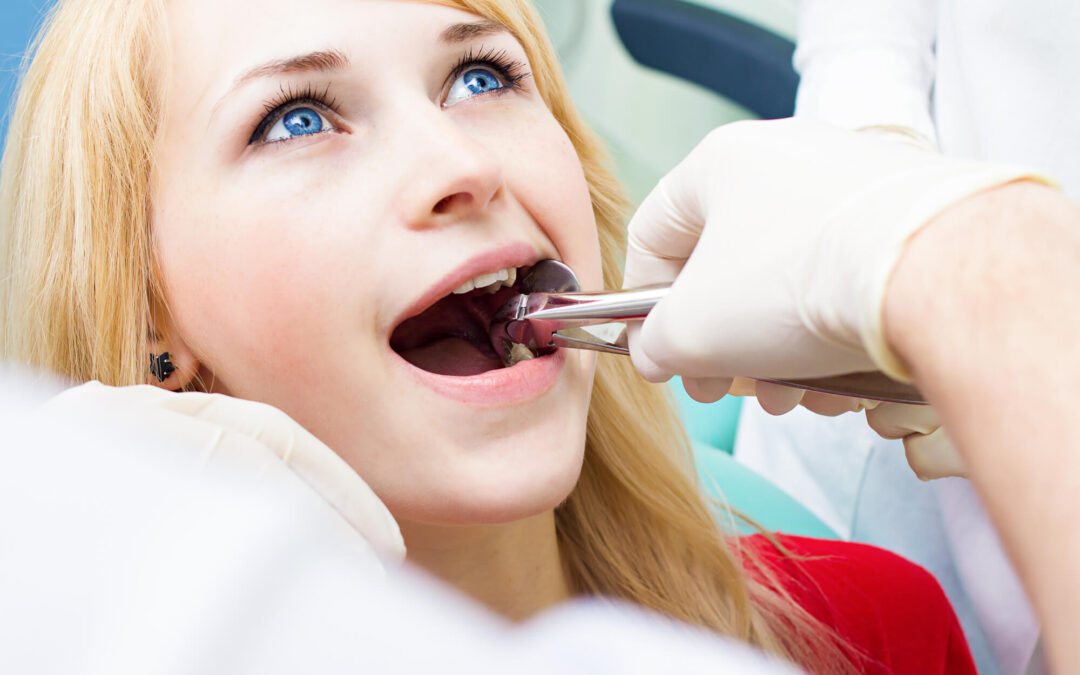
by Dclinicdubai | Oct 11, 2025 | Health
Wisdom tooth extraction is a common dental procedure, but the experience can differ significantly depending on a patient’s age. Whether you’re a teenager or an adult, timing and approach matter when it comes to removing these third molars. If you’re planning a wisdom tooth extraction in Dubai, it’s important to understand how the process and recovery can vary across age groups. Knowing the key differences between teen and adult extractions can help you make a more informed decision about the best time for surgery.
Development of Wisdom Teeth at Different Ages:
Wisdom teeth typically begin to form during the early teen years and may start erupting between ages 17 and 25. In teenagers, these molars are still developing and the roots are not fully formed, which often makes extraction easier and less invasive. In contrast, adults usually have fully developed roots and denser bone tissue, which can make the procedure more complex and potentially increase the duration of surgery and recovery.
Complexity of the Surgical Procedure:
The extraction process tends to be simpler in teenagers due to the softness of the jawbone and the incomplete development of tooth roots. This results in less resistance during removal and fewer complications. In adults, the teeth may be more deeply impacted or embedded in the jawbone, requiring more invasive surgical techniques such as bone removal or sectioning of the tooth. These differences can affect the length of the procedure and the likelihood of postoperative discomfort.
Healing and Recovery Time:
Teens generally heal faster from wisdom tooth extraction compared to adults. Their bodies respond more quickly to tissue regeneration, and swelling or bruising tends to subside within a few days. In adults, the healing process may take longer due to reduced cellular activity and bone regeneration. Adults are also more likely to experience jaw stiffness or prolonged swelling, making post-operative care more important to ensure smooth recovery.
Risk of Complications:
The risk of certain complications—such as dry socket, infection, or nerve damage—tends to be higher in adult patients. This is because the nerves in the jaw are more developed and located closer to the roots of wisdom teeth in mature patients. Teens are less likely to suffer from these issues because their teeth are still developing and less entangled with the surrounding structures. While complications can occur at any age, adults often require more diligent monitoring during recovery.
Impact on Orthodontic Treatment:
Teenagers are more likely to be undergoing or have recently completed orthodontic treatment. Leaving wisdom teeth in place can threaten the results of braces or aligners by causing crowding or shifting. Therefore, early extraction is often recommended as a preventive measure. Adults who’ve had orthodontic work earlier in life may still face alignment issues if their wisdom teeth are not addressed in time, but treatment at this stage may require corrective action rather than prevention.
Anesthesia and Sedation Considerations:
Younger patients typically tolerate sedation and anesthesia better than older adults. For teens, dentists often use local anesthesia combined with mild sedation for a comfortable, low-risk experience. Adults, on the other hand, may have medical histories or health concerns that affect anesthesia options. Conditions like high blood pressure or diabetes can influence the sedation plan and may require additional pre-operative assessments to ensure safety during the procedure.
Emotional and Psychological Factors:
Teens may feel anxious about undergoing surgery for the first time, but with proper communication and support, they tend to adapt quickly. Their caregivers usually play a central role in managing post-operative care. Adults, in contrast, may have more anxiety due to past dental experiences or concerns about time off work and longer recovery. Emotional preparedness and clear expectations can make a significant difference in comfort levels, regardless of age.
Cost and Insurance Factors:
In some cases, insurance providers may cover preventive wisdom tooth removal for teenagers more readily than for adults, especially if the extraction is recommended to avoid future orthodontic issues. For adults, the procedure might be considered elective unless there’s a medical necessity. In clinics offering wisdom tooth extraction in Dubai, it’s important to verify what is covered by insurance and discuss cost differences based on the patient’s age and surgical complexity.
Long-Term Dental Health Outcomes:
Removing wisdom teeth during the teenage years often leads to fewer long-term dental issues. Because the extraction is less traumatic, there’s typically less impact on jaw structure and surrounding teeth. In adults, especially those with impacted or infected wisdom teeth, delayed removal can result in lasting complications such as shifting teeth, gum disease, or bone loss. Taking early action when recommended by a dentist can contribute to better long-term oral health outcomes.
Personalized Treatment Plans Based on Age:
The most effective wisdom tooth extraction strategy takes age into account when planning the procedure. Teens usually benefit from preventive extractions that reduce future dental problems, while adults may require more customized treatment to address existing conditions. Dentists offering wisdom tooth extraction in Dubai assess factors like tooth position, health status, and lifestyle needs to create age-appropriate care plans that ensure safe and efficient treatment for each individual.
Final Thoughts:
While wisdom tooth extraction is a standard dental procedure, the differences between having it done as a teenager versus as an adult are substantial. From healing speed and surgical complexity to risks and outcomes, age plays a critical role in shaping the patient experience. If you’re considering wisdom tooth extraction in Dubai, speaking with a qualified oral surgeon will help determine the best timing and approach for your situation. Whether you’re a teen, an adult, or a parent making the decision, understanding these age-related differences can lead to better planning, quicker recovery, and optimal dental health.
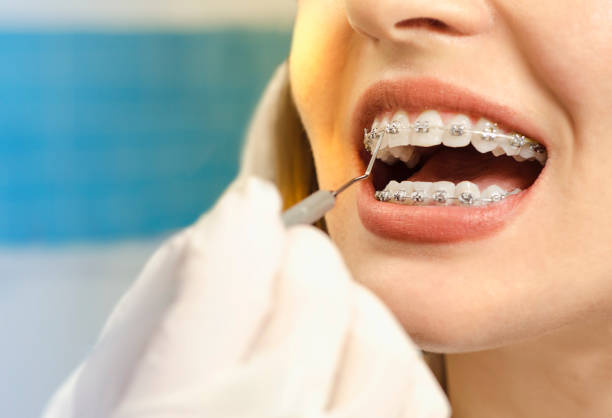
by Dclinicdubai | Oct 10, 2025 | Health
Jaw alignment problems can cause discomfort, affect your bite, and impact your overall oral health. Many people wonder if dental braces can effectively correct these issues. For those considering treatment, especially in regions like Dubai, understanding how dental braces in Dubai work for jaw alignment is essential. While braces are a powerful tool for correcting teeth positioning, jaw alignment often requires a more comprehensive approach. This article explains how braces can help, when additional treatments might be necessary, and what you should expect during your orthodontic journey.
What Are Jaw Alignment Issues?:
Jaw alignment issues refer to misalignments between the upper and lower jaws that affect how your teeth meet when you bite or chew. Common problems include overbite, underbite, crossbite, and open bite. These conditions can cause pain, difficulty in chewing or speaking, and may lead to long-term dental complications if left untreated.
How Dental Braces Help With Jaw Alignment:
Dental braces primarily work by moving teeth into their correct positions. For mild to moderate jaw alignment issues, braces can help by adjusting the way teeth fit together, indirectly improving bite function. By gradually applying pressure, braces align the teeth so the jaws meet more comfortably, reducing strain and improving overall function.
When Are Additional Treatments Needed?:
In more severe cases of jaw misalignment, braces alone may not suffice. Orthodontists may recommend complementary treatments such as:
-
Orthognathic Surgery: Surgical repositioning of the jaws for severe skeletal discrepancies.
-
Functional Appliances: Devices used to guide jaw growth in younger patients.
-
Elastics (Rubber Bands): Attached to braces to adjust bite and jaw positioning.
These treatments, combined with dental braces in Dubai, ensure comprehensive correction tailored to each patient’s unique condition.
Benefits of Correcting Jaw Alignment with Braces:
Correcting jaw alignment has multiple benefits beyond aesthetics:
-
Improved chewing efficiency and speech.
-
Reduced risk of jaw pain and temporomandibular joint (TMJ) disorders.
-
Enhanced long-term oral health by preventing abnormal wear on teeth.
-
Boosted confidence with a balanced, attractive smile.
What to Expect During Jaw Alignment Treatment:
Treatment involving jaw alignment typically takes longer than standard braces. You can expect:
-
Comprehensive orthodontic evaluation, including X-rays and 3D imaging.
-
Customized treatment plans combining braces with other appliances if needed.
-
Regular adjustment appointments to monitor progress.
-
Possible coordination with oral surgeons if surgery is necessary.
Choosing the Right Orthodontist in Dubai:
Selecting an experienced orthodontist who specializes in jaw alignment is crucial for successful treatment. Dental braces in Dubai are offered by many skilled professionals equipped with the latest technology. Look for specialists who provide comprehensive care and personalized treatment plans to ensure optimal results.
Final Thoughts:
Dental braces in Dubai can effectively fix many jaw alignment issues, especially when combined with other orthodontic treatments tailored to your needs. Whether your condition requires just braces or a multi-faceted approach involving surgery or appliances, early consultation with an expert orthodontist is key. Addressing jaw misalignment not only improves function and comfort but also enhances your smile and overall quality of life.
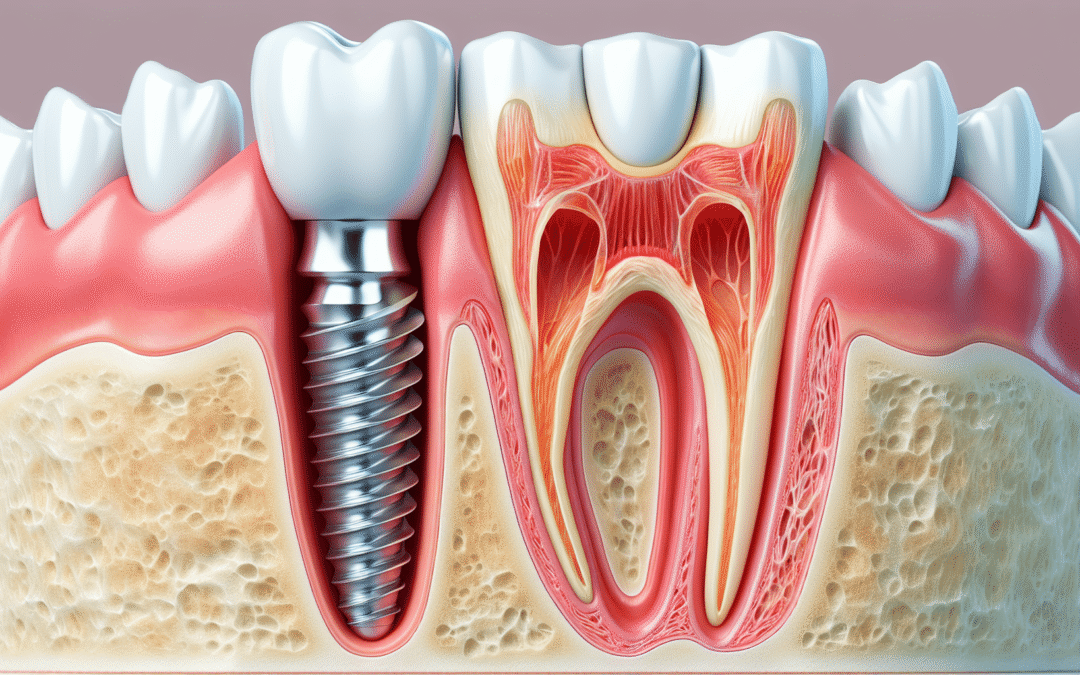
by Dclinicdubai | Oct 10, 2025 | Health
Dental implants have become an increasingly popular and effective solution for seniors seeking to restore their smiles and improve oral function. Many older adults find that dental implants offer superior comfort, stability, and aesthetics compared to traditional dentures. If you are a senior considering dental implants in Dubai, it’s essential to understand what to expect throughout the process and how to prepare to ensure the best outcome. This article provides a comprehensive guide tailored specifically for seniors interested in dental implants.
Why Seniors Choose Dental Implants:
Seniors often face challenges with traditional dentures, including discomfort, slipping, and difficulty eating certain foods. Dental implants provide a permanent alternative that closely mimics natural teeth. They help maintain jawbone density, prevent facial sagging, and improve speech and chewing ability. Additionally, implants offer a boost in confidence and quality of life, making them a preferred choice for many seniors looking to regain oral function.
Initial Consultation and Health Assessment:
The journey toward dental implants begins with a thorough consultation and health evaluation. For seniors, this step is particularly important as underlying health conditions and medications can impact treatment. Your dentist will review your medical history, assess bone density using X-rays or CT scans, and examine your oral health. This evaluation helps determine if you are a suitable candidate and allows for personalized treatment planning.
Preparing for Dental Implant Surgery:
Preparation for dental implant surgery involves both physical and mental readiness. Seniors should discuss any chronic health issues such as diabetes or heart conditions with their dentist to ensure safe treatment. In some cases, pre-surgical procedures like bone grafting may be necessary if bone loss has occurred. Your dentist will provide clear instructions on medications, fasting, and post-operative care to help you prepare for a smooth surgery and recovery.
The Implant Procedure Explained:
Dental implant surgery for seniors follows a carefully planned process to minimize discomfort and ensure successful integration. The titanium implant is surgically placed into the jawbone under local anesthesia or sedation, depending on your preference and health. The procedure typically takes one to two hours and may involve multiple implants depending on your needs. After surgery, a healing period allows the implant to fuse with the bone, a process known as osseointegration, which is critical for long-term stability.
Post-Surgery Recovery and Care:
Recovery after implant surgery requires special attention, particularly for seniors who may have slower healing times. Swelling, minor pain, and tenderness are common but can be managed with prescribed medications and proper care. Following your dentist’s instructions on diet, oral hygiene, and activity restrictions is vital to prevent complications. Regular follow-up visits will monitor healing progress and address any concerns promptly.
Benefits of Dental Implants for Seniors:
Dental implants offer numerous benefits tailored to the needs of seniors:
-
Improved chewing efficiency and dietary variety
-
Preservation of jawbone and facial structure
-
Enhanced speech and comfort compared to removable dentures
-
Long-lasting and durable solution
-
Increased confidence and psychological well-being
These advantages contribute significantly to overall health and quality of life in senior patients.
Potential Challenges Seniors May Face:
While dental implants are highly successful, seniors should be aware of potential challenges such as:
-
Slower healing times due to age or medical conditions
-
Increased risk of implant failure if oral hygiene is poor
-
Possible need for additional procedures like bone grafts
-
Managing multiple medications that may affect healing
Open communication with your dental team and adherence to care recommendations help mitigate these challenges.
Tips for Seniors to Prepare for Dental Implants:
Proper preparation can make a significant difference in the success and comfort of dental implant treatment. Seniors can follow these tips to optimize outcomes:
-
Schedule a comprehensive health and dental evaluation early
-
Discuss all medications and health conditions with your dentist
-
Maintain excellent oral hygiene before and after surgery
-
Plan for a recovery period with minimal physical exertion
-
Arrange for assistance if needed during the first few days post-surgery
-
Stay hydrated and follow a soft-food diet as recommended
Being proactive and informed will help seniors navigate the implant process with confidence.
Why Choose Dental Implants in Dubai:
Dubai is renowned for its world-class dental care, attracting seniors from around the world seeking high-quality implant treatments. Clinics offer:
-
Experienced implant specialists with expertise in senior care
-
Cutting-edge technology including 3D imaging and guided surgery
-
Multidisciplinary teams ensuring comprehensive evaluation and treatment
-
Comfortable clinic environments designed for patient convenience
-
Transparent pricing and flexible payment options
Choosing dental implants in Dubai ensures seniors receive personalized, effective care that meets their unique needs.
Final Thoughts:
Dental implants offer seniors a transformative way to restore oral function, improve aesthetics, and enhance quality of life. While the process requires careful planning and preparation, advances in dental technology and expert care make implants a viable option for many older adults. By understanding what to expect and following professional guidance, seniors considering dental implants in Dubai can look forward to a successful treatment journey and lasting smile restoration.
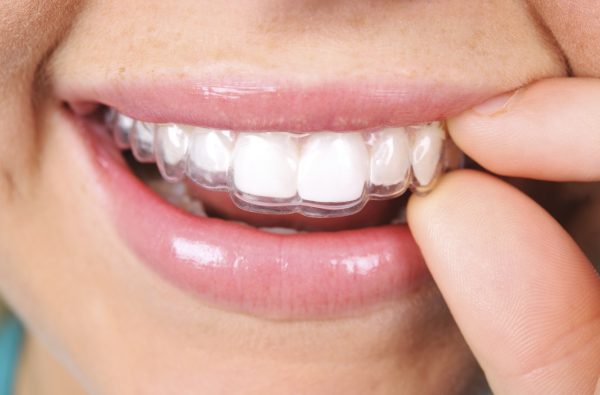
by Dclinicdubai | Oct 9, 2025 | Health
If you use Dental Appliances In Dubai, especially night guards, maintaining them properly is crucial for your oral health and comfort. Night guards protect your teeth from grinding and clenching, but without the right care, they can become breeding grounds for bacteria and lose their effectiveness. This guide will walk you through essential night guard maintenance tips to keep your dental appliance clean, comfortable, and long-lasting.
Why Night Guard Maintenance Matters:
Proper care of your night guard helps prevent oral infections, bad odors, and appliance damage.
-
Prevents buildup of plaque, bacteria, and fungi
-
Avoids bad breath caused by trapped debris
-
Prolongs the life of your night guard
-
Maintains comfort and fit throughout the night
-
Protects your teeth from damage due to grinding
Good maintenance is key to maximizing the benefits of your dental appliance.
Daily Cleaning Routine for Your Night Guard:
Keeping your night guard clean every day is simple but essential.
-
Rinse the night guard with lukewarm water immediately after removal
-
Use a soft toothbrush (separate from your regular one) with mild soap or non-abrasive toothpaste to gently clean it
-
Avoid using hot water, which can warp the appliance
-
Rinse thoroughly to remove all soap or toothpaste residue
-
Let the night guard air dry completely before storing it in its case
A consistent daily cleaning routine helps keep your appliance hygienic and fresh.
Weekly Deep Cleaning Tips:
Once a week, your night guard needs a deeper clean to remove stubborn buildup.
-
Soak the appliance in a denture cleaner or an antimicrobial solution recommended by your dentist
-
Alternatively, use a mixture of equal parts white vinegar and water for 30 minutes
-
Use a soft brush to gently scrub away any remaining residue after soaking
-
Rinse thoroughly with lukewarm water
-
Allow it to dry fully before storing
Deep cleaning removes plaque and tartar that daily cleaning might miss.
Proper Storage of Your Night Guard:
How you store your dental appliance impacts its durability and hygiene.
-
Always use a ventilated, hard plastic case designed for night guards
-
Ensure the appliance is completely dry before storing to prevent mold growth
-
Avoid leaving your night guard exposed to direct sunlight or extreme heat
-
Clean the storage case regularly with soap and water
-
Replace the case if it becomes cracked or damaged
Proper storage keeps your night guard safe and ready for use.
Common Mistakes to Avoid in Night Guard Maintenance:
Avoid these common errors to extend the life of your dental appliance.
-
Using hot water to clean, causing warping
-
Neglecting regular cleaning and letting bacteria build up
-
Storing the night guard in a closed, damp container
-
Using harsh chemicals or abrasive cleaners
-
Ignoring signs of wear or damage
Correcting these mistakes will improve your comfort and oral health.
When to Replace Your Night Guard:
Knowing when to replace your appliance is vital to avoid dental issues.
-
Signs of cracks, holes, or warping
-
Noticeable changes in fit or comfort
-
Persistent bad odor despite cleaning
-
After several years of use, as recommended by your dentist
-
If your grinding or clenching patterns change
Regular dental check-ups can help determine the right time for replacement.
Final Thoughts:
Maintaining your night guard is an essential part of caring for Dental Appliances In Dubai. By following a consistent cleaning routine, storing your appliance properly, and avoiding common mistakes, you can keep your night guard comfortable and hygienic for years to come. Don’t hesitate to consult your dentist if you notice any issues or need advice on cleaning products. With the right care, your dental appliance will continue protecting your smile effectively and comfortably every night.
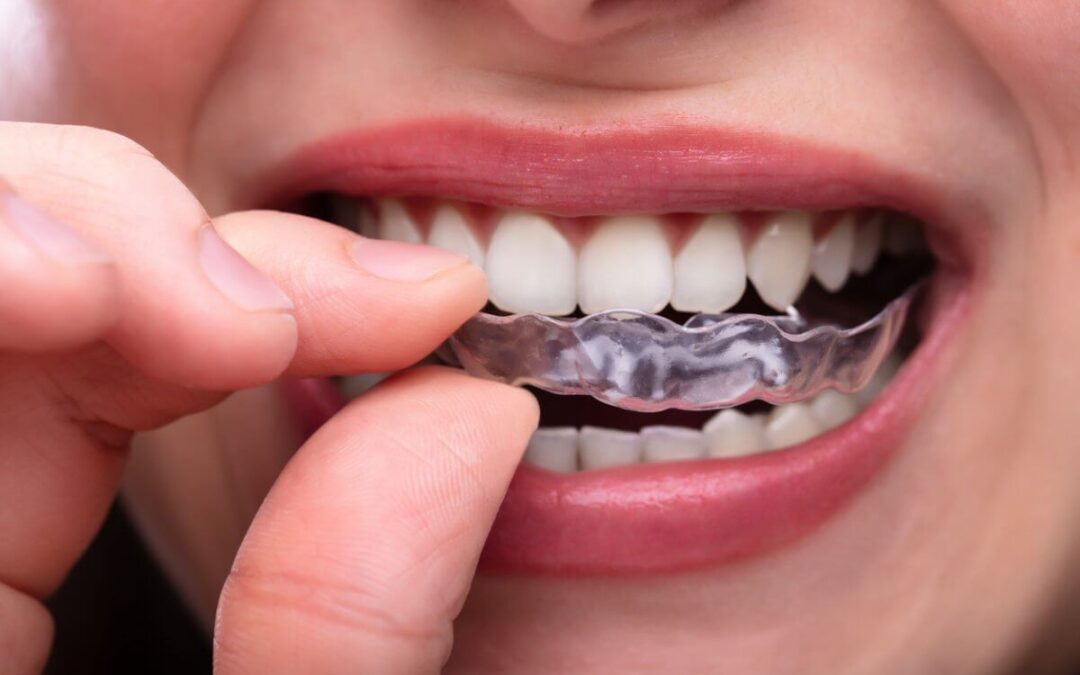
by Dclinicdubai | Oct 9, 2025 | Health
Teeth grinding, medically known as bruxism, can cause significant discomfort and damage to your teeth if left untreated. Many individuals start by trying simple home remedies before seeking expert advice. If you’re searching for effective Teeth Grinding Treatment in Dubai, it’s essential to understand the differences between self-care methods and professional interventions. This article compares home remedies and professional treatments, helping you make informed decisions for lasting relief and dental health.
What Are Common Home Remedies for Teeth Grinding:
Home remedies often serve as the first line of defense against mild teeth grinding symptoms. These natural approaches focus on reducing stress and protecting the teeth without professional equipment.
Popular home remedies include:
-
Practicing relaxation techniques like meditation or deep breathing to reduce stress
-
Applying warm compresses to relax jaw muscles
-
Avoiding caffeine, alcohol, and stimulants that may exacerbate grinding
-
Performing jaw exercises to loosen tight muscles
-
Using over-the-counter mouth guards or “boil and bite” devices
-
Maintaining a consistent sleep schedule to improve sleep quality
While these remedies can be helpful, they are often temporary solutions and may not fully prevent damage or relieve pain.
Limitations of Home Remedies:
Although convenient and accessible, home remedies have notable limitations when it comes to managing bruxism effectively, especially in moderate to severe cases.
Key limitations include:
-
Over-the-counter mouth guards usually offer a poor fit, reducing comfort and effectiveness
-
Lack of diagnosis means underlying causes like sleep apnea may go unnoticed
-
Home methods do not address structural or neurological factors
-
Stress reduction techniques require consistent effort and may not suffice alone
-
Potential for worsening symptoms without professional guidance
Home remedies can complement professional care but are rarely sufficient as standalone treatments for persistent teeth grinding.
Benefits of Professional Teeth Grinding Treatment in Dubai:
Professional care offers a comprehensive approach tailored to each individual’s condition, ensuring better outcomes than generic home solutions.
Advantages of professional treatment include:
-
Precise diagnosis through dental exams, bite analysis, and sleep studies
-
Custom-made night guards designed for optimal fit and protection
-
Access to advanced treatments like Botox for muscle relaxation or orthodontics for bite correction
-
Integrated care addressing both symptoms and root causes such as stress or sleep disorders
-
Continuous monitoring and adjustments by dental professionals for lasting results
Clinics specializing in Teeth Grinding Treatment in Dubai combine technology and expertise to deliver personalized, effective care.
Types of Professional Treatments Available:
Dentists in Dubai offer a wide range of treatments depending on the severity and cause of your bruxism. Choosing the right option is crucial for success.
Common professional treatments include:
-
Custom-fitted night guards to protect teeth and reduce muscle strain
-
Botox injections to relax overactive jaw muscles in severe cases
-
Orthodontic solutions to correct bite misalignment contributing to grinding
-
Behavioral therapies like cognitive-behavioral therapy (CBT) for stress management
-
Treatment of underlying sleep disorders such as obstructive sleep apnea
These treatments address both prevention and cause, offering a holistic approach to bruxism management.
When to Choose Professional Help Over Home Remedies:
Knowing when to escalate from home remedies to professional intervention can save you from extensive dental damage and chronic pain.
Signs you need professional treatment include:
-
Persistent jaw pain or frequent headaches
-
Noticeable wear or damage on your teeth
-
Difficulty opening or closing your mouth due to jaw stiffness
-
Loud grinding noises noticed by your partner
-
Poor sleep quality or daytime fatigue
-
Failure of home remedies to alleviate symptoms
Seeking early professional advice ensures timely diagnosis and prevents complications.
How to Find the Right Teeth Grinding Treatment in Dubai:
Finding the right dental clinic for bruxism treatment involves considering expertise, technology, and patient-centered care.
Tips for choosing a clinic:
-
Look for clinics with experienced dentists specialized in bruxism
-
Ensure they offer comprehensive diagnostic tools such as digital imaging and sleep studies
-
Check patient reviews and success stories
-
Confirm availability of custom night guards and advanced therapies
-
Prioritize clinics that provide follow-up and ongoing support
Dubai’s dental centers offer world-class services to help you achieve the best possible outcome.
Final Thoughts:
While home remedies for teeth grinding can provide initial relief, they often fall short in preventing long-term damage and addressing root causes. Professional Teeth Grinding Treatment in Dubai offers precise diagnosis, customized solutions, and advanced therapies designed for lasting results. Combining both approaches — starting with simple lifestyle changes and moving towards expert care when necessary — ensures comprehensive management of bruxism. If you suspect you have teeth grinding symptoms, consult a dental professional in Dubai early to protect your smile and improve your overall quality of life.





